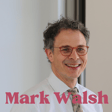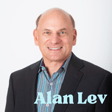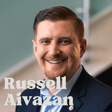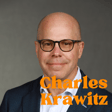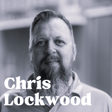Introduction and Career Overview
00:00:27
Speaker
Peter Pollock is a fellow of the American Institute of Certified Planners, as well as a Loeb Fellow of Harvard University's Graduate School of Design. His career as an urban and environmental planner spans across multiple different sectors. He's worked at the National Renewable Energy Laboratory, as well as the Lincoln Institute of Land Policy, all of this in addition to his 25-year service within the city of Boulder, Colorado.
00:00:53
Speaker
Peter's areas of expertise include short and long-range planning, landscape conservation, solar access protection, as well as the history of the planning sector. In this episode, we discuss the degree to which environmental concerns factored into Peter's day-to-day responsibilities as Boulder's Planning Director, the different kinds of roles that urban planners can occupy professionally outside of the government, the academic and experiential prerequisites of this career path,
00:01:21
Speaker
the benefits and drawbacks of settling down and working long-term in one region, and about so much more. It's really a great listen for those of you who are strongly considering this trajectory. Enjoy the episode.
Early Life and Career Beginnings
00:01:38
Speaker
I was looking at your LinkedIn just a little bit earlier, and I see that you are a California native who then moved to Colorado. So are you really into these seasonal changes that we're experiencing now? Are you a Californian? In truth, I was born in northern Michigan, the Upper Peninsula, and lived outside of Cleveland for a couple of years and went to high school outside of Chicago.
00:02:06
Speaker
Nice. And so ended up in school at the University of California. Yeah. And then came to Colorado after that. And I thought Colorado is a nice sort of midway point between the Great Lakes states and California. So I do enjoy the seasons. Snow doesn't faze me. I like to play in it. Yeah. Did you have family out in Colorado or was there like a particular reason that you sought out to university in that area? Well, my parents had moved to the University to California.
00:02:36
Speaker
And so I took advantage of the low tuition rates for in-state students and excellent school system. And I found what I needed out there for school. And I came out to Colorado because of the Solar Energy Research Institute, which is now called the National Renewable Energy Lab. So that was finishing grad school and figuring out what comes next. And that was my next step. That was your first position outside of it. OK, got it.
00:03:05
Speaker
Looking back, so you had kind of clarified this in your email a little bit, was working at the NREL, one of your most significant career moves post grad school? Like when you reflect on things, which are the positions that you would most heavily highlight? Well, yeah, so I've had three basic jobs, I guess you'd say, in my career. First was this National Renewable Energy Lab located in Golden, Colorado.
00:03:31
Speaker
Sort of like a department of energy research lab, like you'd find in Los Alamos or Livermore, California or whatever, but devoted to renewable energy.
00:03:43
Speaker
My a great first job and was sort of the sort of teed me up for my career, I guess you'd say, and got me to Colorado, which I've enjoyed ever since. But that only lasted for a period of about three years. It was on the heels of the energy crisis.
Transition to City Planning
00:04:01
Speaker
And Jimmy Carter set up this research institute. Sure. And in about 1981, the political winds changed in Washington, D.C., and they decided they didn't want to emphasize solar energy so much.
00:04:14
Speaker
And so a bunch of us were laid off and I then found work in the city of Boulder and that led to a 25 year career in city planning there. So in terms of, you know, what my most significant piece of my career was probably at the city of Boulder. And then I just, at a certain point I had had enough of municipal level city planning and was fortunate to get a fellowship at the Lincoln Institute of Land Policy, which is in,
00:04:40
Speaker
Cambridge, Massachusetts, sort of a think tank on land use issues. And they were looking for somebody to manage their Western programs, which I did out of my house. That sounds amazing. What is the general distinction between urban planning and environmental planning if you had to differentiate the two? Yeah, if you look at any of my kind of
00:05:00
Speaker
resumes or profiles like on LinkedIn, I'll list both urban planning and environmental planning. And I think they've been key to the way that I see my role in the world and the planning world. I entered into both my education and my career was sort of a strong set of environmental ethic, if you will.
00:05:23
Speaker
that, you know, I was out to help save the world, I guess, in some ways.
Environmental Ethic and Influences
00:05:28
Speaker
Came of age during Earth Day, which was in 1970, and some 20 million people participated in protests and demonstrations and activities to try to get better air and water and land use and things like that, and sort of followed that track into my education. Graduated from
00:05:49
Speaker
University of California, Santa Cruz with a degree in what then was called environmental planning, then went to grad school and landscape architecture. And the whole interest in renewable energy really played into that. It was sort of like, here's an alternative way to power our cities and make the world a better place if we just would use more solar and wind and all those kinds of things. Right.
00:06:14
Speaker
How did your interest in just the environment in general come about? Was that a family derived and you kind of applied for degrees that had this sort of focus later on? Yeah, that's a good question. I think my dad was a geologist and a mining engineer. And so in some ways he was on the dark side of, you know, looking for those minerals and sinking shafts in the ground to get copper out of the ground and things like that.
00:06:41
Speaker
So I think there's, I was, and I also grew up in a very rural place in Northern Michigan. So I loved the outdoors and nature. And my initial thought was to become a forester. Wow. And, um, so I was sort of going down that path, um, and went to a school in Ohio that does, it's a work study program. So you do work half the year, you study half the year. And so I was able to actually work in forestry.
00:07:07
Speaker
and sort of came away from that feeling like, I'm not so sure about all this stuff. And then when I went to school in California, it was like a light bulb went off. It was like, here's a way to help protect the environment using some bigger laws and policies and a career that could really amount to something in terms of environmental protection more than being a forester for a lumber company could for instance.
00:07:33
Speaker
It came out of, I think, where I grew up, a little bit of background from my dad and poking around this idea of forestry and then finding something different at school.
00:07:43
Speaker
So it sounds like your main gripe with the original idea of becoming a forester was that you didn't have as much personal power in making changes you thought you might. Well, if you look at how people in that field work, if you're a forester, you're either working for a lumber company or you're working for a regulator of some kind, US Forest Service or a state forestry operation.
00:08:08
Speaker
And coming from either direction, I wasn't impressed really with the care that the regulators were using really in terms of making more sustainable
Boulder's Sustainable Growth
00:08:19
Speaker
for us. And I found the folks in the private sector willing to overlook the idea of sustainable for us in order to cut more if they wanted to make more money. Right. And to what extent did environmental considerations factor into your work in Colorado? Once you were working in Boulder,
00:08:38
Speaker
Yeah, well I found my life place here in Boulder and it was partly because I found the values of the community to be very in sync with where I was thinking. Because I think one of the focus areas I had in my career was the idea that if we could make compact cities more livable,
00:09:01
Speaker
and more sustainable, then we wouldn't be spreading out. This was very much in the era when everybody was talking about sprawl and all those kinds of things. If we could be more compact, we could preserve more land at the outside. And Boulder is a community that's purchased tens of thousands of open space by the community to create a green belt and then create this more compact city within it. So it's always been a place where I felt in sync with the values of the community.
00:09:31
Speaker
got it. And so as the city is kind of considering how to develop over the past few decades or so, were you working primarily with small time investors with developers? I mean, who was your main population of interaction? All right, well, it varies. So it was a 25 year career. And this may look like somebody who sort of sticks with location, like you go to work for the city of Chicago, and you start as a
00:09:58
Speaker
you know, on the sort of bottom rung of the ladder. And I climbed up that ladder over time. So I started really in what's called development review or different names for it, but you're basically taking in those applications and making sure that they meet the standards of the code. And in that regard, you're dealing with the developer, you're dealing with the neighbors who surround it, you're dealing with the decision makers in the community, that type of thing.
00:10:26
Speaker
I then went on to something more that looks like long range planning. We've called it here, but it's more project based kinds of stuff. Yeah. And so that could look at long range planning for the future, like the comprehensive plan or the general plan. What's the overall blueprint for the community? Um, it could be a particular area in the city, like what's going to be the future of North Boulder. You know, what could we do specifically there? Um,
00:10:52
Speaker
it could look like a special project that creating a new program or a law like a wetland protection. So very diverse kind of range of things. And then like a lot of people do, it got bumped into some management and managed the long range planning function and then ultimately became the planning director. And in those settings that you're dealing with, it's a very, we call it a contact sport sometimes. You're dealing a lot with the public and with the decision makers.
00:11:21
Speaker
with other city departments, that type of thing. So there's a lot of interchange in contact with people. Right.
Planning Philosophy and Challenges
00:11:28
Speaker
And would you say that that comes pretty naturally to you or did you have a little bit of a harder adjustment period when you first started? I was in those management roles. Yeah, the management part came relatively easy to me because I'm a strong believer that no one person does anything on this planet, really. It's all done with other people, right? And so
00:11:49
Speaker
I think the focus really was on building strong teams and enabling people to do the best work they could. And we were lucky to have some very excellent employees and planners in the staff. And so part of my role was to make it life easy for them to the extent I could and to grease the skids, that type of thing.
00:12:13
Speaker
I would say that, you know, I often will talk to young people who are thinking about getting into planning because it seems like a really creative, awesome kind of opportunity to help shape the community and to do that type of thing. But because of this aspect that it feels sometimes like a contact sport, it can wear on you. Absolutely. And so, and I figure I'm sort of on the borderline between an introvert and extrovert. It's like,
00:12:42
Speaker
I would be in those public meetings and be there for three or four hours. Sometimes it'd be angry meetings, that type of thing. It took me a while to recover from those things. Or you're in a situation of reviewing developments where, you know, the developer, frankly, probably doesn't really want to be talking to you and be involved in your process. And the neighbors that you're saying, well, here's a new development coming near you and there's going to be change in your neighborhood. They might not be so thrilled either.
00:13:11
Speaker
And so and decision makers can often reflect that dichotomy in the community. And so it's sometimes difficult I think for people in these roles to find that sort of base of what is it I'm here for why am I doing this.
00:13:28
Speaker
And that's really critical, I think, to being successful in the field is to have that sense of purpose of what you're up for. Sure. And you would define your sense of purpose as being what?
Evolving Focus in Planning
00:13:39
Speaker
I'm assuming it probably evolved over the years, but what were you telling yourself? Yeah. Well, I think a little bit goes back to that sort of initial notion of, yeah, if we could make better livable, compact cities and preserve land around us, that's a good thing.
00:13:54
Speaker
But in a planning world, you touch so many different things. That's the joy of it at some level, right? It's like no one day is like the other day.
00:14:07
Speaker
You're finding new challenges, new issues are being brought up, you're learning yourself and you have to adapt new tools and things like that. So that, that's really important. So that kept me going, I guess. But in terms of the why, I mean, I think increasingly we've gone through waves of this, you know, so there was smart growth for a while, right? And then there was sustainability as sort of a key concept of the three legs of the stool and trying to
00:14:37
Speaker
bring in equity concerns. There's been the whole emphasis on social justice and equity. And those things, I think, because they're reflections of the greater society and stuff, incorporating those ideas into your own career and your own practice are really helpful and give you new challenges to look for. But I was never bored.
00:14:59
Speaker
during these different trends that you see where sustainability and social justice are being emphasized throughout how many years, like could you give representative projects of the kind of things you were working on during those different stages? Well, I mean, I think the the smart growth idea really was this notion of sort of an anti-sprawl and concentration piece of and what that involves as a city
00:15:26
Speaker
mature. So Boulder made the decision to create and essentially what's an urban growth boundary. We're going to stay within this boundary. And lots of cities are in that situation anyway because cities surround them that type of thing. They're not growing out necessarily. So it's all about what's happening within. And so what are those changes over time. So for instance even now I mean we're looking at commercial space in a much different way. You know the
00:15:56
Speaker
typical shopping center is having to be reinvented, right? In terms of its role and function and presents an opportunity for other things. So housing affordability is a huge issue in Boulder. It's a very desirable place, lots of pressure on housing here. And so we started to look at commercial shopping centers as a potential place for housing, more mixed use, that type of thing. So I think that
00:16:23
Speaker
Those challenges have been somewhat always present, I suppose. But I think people's consciousness and the willingness of the community to address them can go up and down over time. But a huge emphasis now is affordable housing. It's probably not less of a concern 20 years ago, 25 years ago. It's a big concern now.
00:16:46
Speaker
And how about sustainability as a general trend you've witnessed? What exactly, how does that manifest in the issues that you were dealing with as a planner?
Sustainability and Climate Change
00:16:56
Speaker
Yeah, I mean the benefit to the construct I think is
00:17:01
Speaker
The idea that we're going to be here for a long time, hopefully. I mean, we can get in a mindset where, you know, a long range plan for a community, you know, it's fortunate if it's like 10, 15 years old long in terms of its perspective. But I mean, if the species is really going to be here occupying this planet forever. Yeah.
00:17:24
Speaker
You know, that's a really long period of time. So the idea that we have to be sustainable in the way that we approach this and it sort of shines a light at things like consumption and conservation and those kinds of things. Very useful. And obviously with the concerns of climate change now being really focused and added on that idea, it's got that sort of sense of urgency to it as well.
00:17:49
Speaker
The other thing that it really did was it said, yeah, the economy is important. It's hard to enjoy Boulder as beautiful as it is as an environment without a job. So you've got to have a vibrant, good economy that matches the community desires and character, et cetera, et cetera. But the environment is also really critical. And that had, for a long time, been the main focus of the community.
00:18:12
Speaker
But equity concerns coming in, I think planners struggled at the beginning of, well, what does this mean for us? I mean, equity and income distribution and those kinds of things, big societal kinds of concerns. But we have our finger on things like affordable housing for the most part.
00:18:31
Speaker
and things like how do we run a transportation system that more people can use, that sort of thing. So people started to get more focused on what are the things we can actually contribute to it. So I thought sustainability probably not being thrown around is a term much these days, and the focus is more on climate change and resiliency, those kinds of things. So these things have trends and change over time, but sustainability was a very useful construct for quite a while, I think.
Engaging the Next Generation
00:19:02
Speaker
Okay, so aside from trends, something that I've heard from other urban planners and city planners on this podcast is that
00:19:09
Speaker
It's integral to get the input and insights of young people when you want to plan the development of a city 10, 15 years in the future, right? And this was like a huge part of your own career. So I'm wondering if you faced similar struggle or if you kind of currently are witnessing that more young people are taking part in this process and coming to study meetings and contributing like that. I know in Chicago, at least it's really not very common for many people to go to these things, but Colorado might be completely different.
00:19:39
Speaker
Yeah, I don't know if it's completely different, but I think there's an interest in a willingness to do it for sure. So you start with that good intentions, right? People want to make it happen. There are some actual some special programs.
00:19:52
Speaker
in the city that are geared towards school-age children, I mean, down to elementary school, that type of thing. I think the whole, this might be the, you know, a good side of social media is that it provides the tools and the ability for people to get more engaged. And I think that, you know, having gone through COVID and finding new ways to try to engage people actually loosened that up a lot and sort of,
00:20:22
Speaker
I think that a lot of the critique was definitely correct that you know if you're a wage earner and you've just come home and you know last thing you want to do is to go down to a planning board meeting down at City Hall or you know you don't have the wherewithal to do it or whatever.
00:20:40
Speaker
that some of these online kinds of forums and things like that are really useful. And so you see a lot more use of that, I think. So even today, I was looking up the agendas for the planning board, it's like they're hybrid meetings still. So they'll have people down there, but they're still doing things by Zoom and they're still allowing for that kind of interaction to occur.
00:21:02
Speaker
And then I think any kind of responsible kind of effort in long range planning has got to use a whole wide variety of ways to get input. And I think, you know, it's good to have the input that comes in across the airwaves or the Internet or whatever.
00:21:20
Speaker
Um, but even surveying, uh, I'm a big fan of surveys. I think, you know, asking people and then hiring professional surveyors to go out and actually get the pulse of people is all very useful information, both to the planners, but ultimately to the decision makers because planners are, we're change agents.
Community Decision-Making
00:21:41
Speaker
You know, we're helping make change, but we're not the deciders, right? And thank God, because right, it's still that democracy out there and people in neighborhood associations or the elected city council or the appointed boards. Those are the people who want that input. So they definitely want to.
00:22:03
Speaker
make sure you've checked that box that you've been out there talking to those folks. Sure. I always kind of wondered why city planners were not elected officials. That seems to me like it would make a lot of sense, right? For a local population to really invest in a person or a group of people to kind of lead the development of things. It's a little scary to me, Julia, I must say. I don't,
00:22:29
Speaker
I think the history, if you look at like a Robert Moses or somebody like that who had a tremendous amount of power and was able to use the government in ways to make huge amounts of change, some for the good and some definitely for the bad, you start to worry about that in the hands of wrong people. I do like the checks and balances that come from
00:22:54
Speaker
representative democracy. I think that's really important. And I don't think the model of a planner saying here, follow me over the hill. I've got a great plan for the future of this area or city or whatever is the right way to go. I think a good planner helps facilitate community decision making to get them to move forward in a positive direction. Right. Okay. So on that note, I'm really curious because I've never spent any time personally within a planning office, but
00:23:25
Speaker
Let's say you and your coworkers, well, as a director, you would be sort of wanting to make a certain set of changes and you get, let's say a significant majority of the local population to also want to move in the direction that you're advocating for. How do you get that to happen? Like, is there a vote that needs to take place or what's the, who's signing off? So different departments might be organized in lots of different ways. I mean, you know, you know, one planning department, you know, one planning
00:23:55
Speaker
some ways. I mean, there is a general framework and a model. You'll usually have the current and the long range and these special functions and that type of thing. And you do generally, yeah, you have a director whose responsibilities generally have to do with being that conduit for communication from the city council, let's say, the planning board and
00:24:18
Speaker
In our case, it was a city manager. So a lot of cities don't have strong mayors. They have strong managers who are selected by a city council. And you might have a mayor, but they show up at ribbon cuttings and things like that. So anyway, the direction for us in terms of what was on the table typically would come through that process of the council or the planning board or commission or the manager might say, you know, here's our priorities for the year.
00:24:48
Speaker
then your job was to organize turning that out. And then in terms of the day to day of a current planner or a long range planner, the way that you get your influence is by bringing forward ideas and options and communicating those and working with those publics that are really interested in things and help giving shape. I always thought it was critical that there be a recommendation from a planning department.
00:25:17
Speaker
and say, yeah, you told us that we should revise the code on how we're going to site a homeless shelter. Here's our recommendation. We think it should look like this.
Planning Structures and Projects
00:25:27
Speaker
That was after a ton of input and creativity on the part of the staff to actually come up with the solution for that. You mentioned the homeless population. I'm curious, do you have like an area of work within planning? At least that what you did in Boulder that was the most fascinating to you or the most personally gratifying when it comes to
00:25:48
Speaker
solving local problems? Yeah, well, um, I think sort of is ironically sort of on two ends of things. I think there's a need to create sort of a stability in terms of a planning function that's sort of ongoing, right? So that it's sort of predictable in some ways, both from the regulatory perspective of if I come into the planning department, you know, this is what I can expect from a development perspective.
00:26:17
Speaker
Or if I'm an interested citizen and I'm really concerned about the long range future of our community, we're going to be updating that comp plan every five years, and here's how you do it, et cetera, et cetera. So actually creating that structure and sort of a roadmap that showed people how these things would proceed, that was satisfying. But yeah, then there's the special project, like the big tough problem, like we're having a hard time siting a homeless shelter in our community.
00:26:45
Speaker
Let's develop a code to do it. Well, that was tough to do. Or we want a local wetland protection ordinance. Well, got to learn all about wetland protection. And how do we create an ordinance to do it? So the creative side. So I'd say it's a little bit of both. It's both the structure and making sure it's working well, and then that new idea coming in that you help tackle. That makes sense.
00:27:12
Speaker
So something that you touched on in the points we discussed over email is maybe for people who don't want to be a planner and involve kind of the more political aspects of having to interface with politicians and the public and be very careful about how they approach delicate social situations.
Career Path Advice
00:27:30
Speaker
Like they want to work in this industry, but not necessarily for the government. What are other tracks of career that they can kind of follow where they can implement the same kind of changes that you were
00:27:42
Speaker
Yeah, no, I agree. I think I would recommend that people consider at least a short stint in a municipal planning office, regardless of which way they go from there. Because I think it's good to understand sort of at the
00:27:59
Speaker
The most critical interface, if you will, local government and the development world, how that actually operates and having a good foundation in that, that'll make you much more effective in any of these other kinds of roles that are out there. My own career is a little bit of an example of that. The work that I was doing at the National Renewable Energy Lab
00:28:21
Speaker
That was an organization that's a contract research organization, right? They're getting money from the federal government to research and promote something like renewable energy. Um, that one is a model there. It's direct government funding to some entity that creates that opportunity. And I was there staff urban planner. And I was going out and talking to communities about energy planning and solar access protection and things like that.
00:28:48
Speaker
But foundations also do work like that too. So you think of the Walton Family Foundation, the folks who got their money out of Walmart. Turns out many of that family are very promoting land conservation or other kinds of things. And so that you can go to work for that foundation and be
00:29:09
Speaker
either a person that's making grants and following up on them, or I worked for this group, the Lincoln Institute of Land Policy. It's a so-called operating foundation, meaning
00:29:19
Speaker
They don't just write the checks, but you have to be actually engaged in it. And that was another option. And then the whole nonprofit or people are even more politically active in this way or that or somebody advocating for affordable housing can use a planner's skill to say, well, what are the policy levers that we might use here? Or how should we be focused on getting our message out or funding the right things or making sure that we're doing the work we want to do?
00:29:49
Speaker
And so regardless of sector that you go into, if you had to summarize maybe the best personal traits, characteristics, skills that going into making that go into, sorry, I cannot speak today. Being a city or environmental planner, what would those be? Yeah, I think I've often pondered
00:30:11
Speaker
one aspect of this because a lot of planners even in city governments will show up they're really interested in housing so they become housing planners right or they're really interested in parks and they become a park planner or I did a stint as a historic preservation planner it was about you know preserving old buildings and historic districts and stuff
00:30:32
Speaker
And then, of course, I started my career by I know a whole lot about solar access and community energy planning. How much did I actually use that knowledge, that deep, deep knowledge that I got in school? Sort of. So I think that it's OK to start from a base of knowledge about something in particular. But there's old sayings that, you know, planners know a little about a lot, not a lot about a little. Right. So it's like,
00:31:02
Speaker
One of the traits of a planner, I think, that's good is you can pick up pieces from pretty disparate kinds of places and see how they fit together. Right. So that you know about law, you know about policy, you know about the science, you know about this. And sometimes you have to go to work on, you have to study or something like that while you're in the job to make it happen.
00:31:25
Speaker
But it's that skill of synthesizing and putting pieces together that I think make for a successful one. I think it is good to have a good foundation in the tools of the trade, right? So one of the aspects we touched on is, I mean, one of the unique things that planners can do is to regulate private land.
00:31:48
Speaker
not always really popular, but they have the police power, as it's called, to say, oh, I'm sorry, your building can't be taller than 35 feet, or you're gonna have to have it set back this much, or maybe you're gonna have to provide 20% of your project as affordable housing. Those laws and standards are critical to the function of the field, but you really gotta know your stuff. And then in terms of just
00:32:17
Speaker
You know, the day-to-day work, communication is huge. You have to be really good at speaking, writing, the follow-up. You have to enjoy that part of the job because if you're not communicating, people have no idea what you're up to and you're not going to be successful when you get there. And I do think this idea, this sort of leadership part of focusing on the team, helping groups facilitate action, that type of thing,
00:32:48
Speaker
That's a good skill set to have. Now, how much of that is taught in schools? I think some of it, the communication for sure, the legal and policy basis is there. You can go down a track of learning a lot about housing or parks or whatever. Some of it you have to get out in the real world and do and try things like the teamwork and leadership will also come from
00:33:14
Speaker
Got it. Okay. So on this note, do you think then that a specific college degree is absolutely necessary in order to become a planner? That's a good question. I think the, um, I would say amongst a certain set of communities, you're going to find sort of a demand for people who have some educational background, certainly a bachelor's degree of something related.
00:33:43
Speaker
and potentially a master's degree. But again, this is looking broadly at the whole country and maybe even broader than the United States. The big, the city planning offices in the larger cities
00:34:03
Speaker
will look for those kinds of credentials. And also university towns. That's why Boulder is the way it is. It's because it's a university town. It'd be like Champaign-Urbana or something like that. That probably is a first rate planning office. And it's probably because the community demands it because there's a lot of smart people there. But there's also sort of an expectation of a certain set of skills.
00:34:27
Speaker
Now, could you enter in in other ways? Absolutely. But I think the further you go down the path, the better. I hired people with masters in city planning, but also masters in landscape architecture, that type of thing. There were also, you know, depends on the scale of the planning office. We hired this out, we would go look for consultants in this area, but a lot of
00:34:52
Speaker
folks in this world specialize, say, in urban design. So it's an architecture background with working at the urban scale and those kinds of things. Or economics. We always use people who understood the value proposition of anything that we were doing, both the projects we would be supporting. Or frankly, if we were about to enter into regulation, we wanted to make sure that enough was left on the table for the development community because
00:35:22
Speaker
Without development, the projects aren't going to happen. Absolutely. But you want to know exactly what's reasonable in terms of any regulation you put down. So those specialties of economics or urban design or even facilitators like going in and helping community process, those may be things that get hired out through consultancies.
00:35:44
Speaker
Among different fellow directors that you ran into in Boulder just throughout your career, though, did you notice that there tended to be a trend of them all having master's degrees? Like, would you say that there's a glass ceiling, I guess would be the term for it if you only have a bachelor's and you want to keep climbing in the field? Yeah, I would say one of the projects that I had the privilege of doing for the Lincoln Institute was we would assemble
00:36:10
Speaker
every year in Cambridge, a group of the planning directors from the 30 largest cities in the country. Nice. And so this is going from New York City down to Louisville, Kentucky, let's say. Sure. And I would say most of those people had gone through that level of education. But of course, these were planning directors. Yeah. And so their staffs could be large. I think part of this is making yourself useful in any organization.
00:36:39
Speaker
So I don't want to be categorical and say, well, don't even think about it if you don't have a master's. Well, if you're good at what you do and are contributing to something. But there may be a ceiling of, yeah, well, you're not necessarily going to be the person they look at to do as a supervisory thing or that type of thing. But I got to tell you, there are people who I know and respect and think are great planners who have made
00:37:06
Speaker
choices. So I, you know, as I said, you know, it can be a very wearing job. So I had an employee who was like the best counter person I ever had interacting with the public and the development community, that type of thing. But he wanted to go home at five o'clock. He did not want to go to those planning board meetings, did not want to go to those community meetings, did not want to have my job. So I think, you know, there's a role for lots of different kinds of people, I would say in the field. Okay.
00:37:36
Speaker
Understood. I don't know if you can answer this, but let's say there is a younger person within the office who does have that particular motivation to go do things after work and outside of work in order to climb, but they don't want to pay out of pocket for a master's degree. I know it's very common in the business world, in the finance and banking world for companies to sponsor the education of their employees. Is that the case
00:38:01
Speaker
in like a governmental context. I feel like I already know the answer to this, but are there any? Yeah. The pockets aren't quite as deep in local government, unfortunately. So I think that's a rarity.
Balancing Education and Work
00:38:14
Speaker
But I will say that I've definitely known people who did work and school. And there's a great tradition of interning in planning offices, for sure.
00:38:25
Speaker
My first job at the National Renewable Energy Lab, I went out there as a graduate intern. I did not have an expectation that I was going to get the job. I was just tired of school. I'd gotten my master's. I could go back and get another master's in another year. And I said, I'm done with it. Went out there and got on board. And ever since, I mean, especially in university towns, obviously, it's quite common to have interns there.
00:38:51
Speaker
But yeah, it's a lot to juggle, right? Obviously, because school costs money, these jobs pay, but maybe not so well. So that's a tough one. But to the extent that people can add to their education, I think that's great. And I think the accommodations would come in the realm of time. It would be, yeah, you don't have to go to that night meeting, we'll cover for you, that type of thing. You need to study or go to a class or whatever.
00:39:18
Speaker
Sure. So they're supportive of the ambition to become more educated. I think so as a general rule. Yeah. And especially if you see somebody who's sort of a promising person and, you know, wants to, has that ambition, that's great. Sure. Okay.
Reflections on Career and Mentorship
00:39:34
Speaker
What would you say your most unexpected
00:39:39
Speaker
like aspect of this job would be. So now looking back on your career as you're retired, is there something that you would tell a young aspiring urban planner to prepare themselves for that they wouldn't necessarily find on a Google search, you know, like urban planner Colorado? What does this look like? Unexpected. Well, in some ways it was all unexpected. I never thought that I would stay with an organization for the period of time that I did. And I don't know what the,
00:40:06
Speaker
current culture, you would say, amongst young people in real estate is like. But, you know, I did three years in Golden, Colorado, and then I land in Boulder and it's like, I was expecting to do like five years. Well, then 25 years later, I turn around and I'm still there. I think that was unexpected from a career perspective that I would find someplace that I wanted to dig in deep.
00:40:32
Speaker
And I think that's sort of a fundamental career choice in city planning. Because the other major option we haven't touched on really is the whole world of consultancy. So typically found in most design firms or even engineering firms, that type of thing, would be somebody who plays that plan of role.
00:40:55
Speaker
And they go either work the entitlements process to get projects approved, or they're working with communities and develop urban design plans or whatever. And so the difference there is for 25 years in Boulder, I know it down to a very granular level of what's going on in each corner. I know all the players. I'm deep into the community.
00:41:22
Speaker
And that has its benefits. But the thing that I didn't get was the range of options to look at, like the different cities, different problems, that type of thing, that these folks who were consultants got to do. So anyway, I think that was sort of unexpected that I would like something that was so deep and lasting
00:41:49
Speaker
But I think there's a different way to go, which is if your mind is more like, gee, I'd like to see what they're doing in St. Louis and Biloxi and Cambridge and participate in that. Well, there's a different route to go. Sure. Well, I would love to ask you if you're open to answering why it is or when it is that you knew that Boulder was going to be your settling place. Because for young people, I know so many of my friends are
00:42:15
Speaker
Constantly debating whether to move and you know start over somewhere else because they're young and they can afford to and they want to see what's out there But when do you kind of know within yourself that it is time to put down roots? Yeah, that's a good question. I I had the benefit Partly that going back to that school that had the work-study kind of program for two years I studied half the year and and I worked in different places and I probably so I was in
00:42:43
Speaker
Northern Wisconsin, I was in Massachusetts, I was in Oregon, had the school experience in California. So by the time I was working my way into that first job, I had seen a bunch of different places and could have a sense of the kind of community I might enjoy and like. But what I would encourage people to do is, like you say, this is a good age to experiment a little bit, right?
00:43:12
Speaker
The downside of having it not work out may not be so high, right, if it comes later in your career. So, yeah, I think, you know, interning is one way to do that. But just being, taking a few risks, I guess, you know, if you want to sort of say, well, gee, I wonder what that would be like to be set in that situation. Yeah. Take a risk or two.
00:43:40
Speaker
on this note of considering risks, is there anything in your own career that you wish that you did or did not do that might have put you perhaps in a better or just very different place today? No, I've lived a pretty blessed life, I think. So I'm not going to be able to tell any horror stories. I mean, I do think that that initial
00:44:05
Speaker
wave of going into the whole solar energy renewable energy thing and sort of riding that crest of the energy crisis. That was a moment that could have been a moment of sort of despair. It could have been, oh my God, you know.
00:44:19
Speaker
There's no support coming from the federal government. I think many of us who were involved in that issue in that time still feel like, oh, well, we just sort of lost 30 years in terms of making some kind of transition to renewable energy, which would be probably pretty handy right about now. So that was a regret. But I think that sticking with it in terms of working through with the city over time,
00:44:47
Speaker
paid off huge dividends for me. Did you have any mentors specifically in Boulder where you were based for so many years that kind of made it easier, I guess, for you to make the right connections and know which events to go to and everything in that nature? Yeah, I think I was. First of all, Boulder is a community now about 100,000 people.
00:45:11
Speaker
And if you take out the students who come and go, you start to find out there's sort of a core, if you will, of the community. And one thing about working in local government is you meet a lot of those people. And so you do develop these relationships with people who can show you alternatives or be helpful along the way, that type of thing. I had
00:45:35
Speaker
two great mentors in college and university. So that helped a lot along the way, sort of focusing where I might go professionally. And then at the city, I had the benefit of a mid-career sabbatical program, which is sort of a rarity in the field, unfortunately.
Mid-Career Reflection and Growth
00:45:57
Speaker
But I had a director, I was the director of long range planning at the time, who said,
00:46:04
Speaker
Peter, you're doing pretty good here in Boulder, but you need to get out of town because Boulder can be very much of a bubble and fly at the treetop level and see the rest of the world and see how they're doing things and help me line up a sabbatical for a year. So that was huge. And that was really the springboard for me to come back to the community. He had since left and become their director. So that was a key moment in my career for sure.
00:46:32
Speaker
What did you do during this sabbatical? I'm guessing it was professional expansion related, or? Yeah. So it would be, so this was actually, it's called the Loeb Fellowship Program, and it's at Harvard University, and it's at their graduate school design. And every year they bring in about 10 professionals mid-career and give them the run of the university. And you
00:46:57
Speaker
live within that team. I actually brought my family out to live in an adjoining town. But it was really good for sort of challenging me and affirming some things and sort of setting me on a new course for the rest of my career. I'd love to find ways to make that more available to people in general because it played a big role in my life.
00:47:25
Speaker
Sure. If I might ask, how did this sabbatical change, I guess, your approach to things in Boulder when you came back? Yeah, I think it, you know, that notion of you need to fly at the treetop level and look broadly at what was going on was very helpful. So given the sense of now Boulder again can be sort of
00:47:46
Speaker
somewhat insular and full of itself and under this bubble. And so looking at the challenges that were being faced across a much broader geography and by professionals in all sorts of cities, that gave me perspective on what we were doing. Got it. And why do you think it's so rare, I guess, for people to take time mid-careers to really think about what it is that they're doing and how they're doing it, especially within planning?
00:48:16
Speaker
Yeah. Well, it's tough. I mean, you know, you think about, you see those charts about what phase of your career are you making the most income, right? A lot of it is in the middle of your career. It's sort of like you've made that initial choice. You've climbed up the ladder to the point you're going to do. You're functioning at a good level that you're sort of solid into that period. There's a lot of risk.
00:48:39
Speaker
associated with saying, oh, OK, well, I'll go take this year and sort of wander in the wilderness a little bit and sort of figure out what I want to do, that you would be able to continue to do it. This particular opportunity, it's got the Harvard label on it. It's got a lot of prestige associated with it. That wasn't a problem. In fact, their model is to take people who are doing pretty good in their middle of their career
00:49:08
Speaker
and then give them this opportunity and that idea would be that they would accelerate their career and go on to do good and better things.
00:49:17
Speaker
But just coming up with the resources to do that, I mean, even Harvard can only take 10 in. So it's just hard to find them. Now, could you do that yourself? And that was sort of the alternative we talked about, was maybe we'd go talk to some local professor or some mentor. We asked them for 10 books we might read together and talk about or something like that.
00:49:41
Speaker
you could see this operating in different ways that would give you a chance to have an experience that would allow you to make that next step. How about for college students who are looking to make the next step in working in planning other than just interning at a city office like you initially advocated for at the beginning of this episode? What are some things that they can maybe do to make themselves more attractive candidates for those kinds of positions?
Advice for Aspiring Planners
00:50:09
Speaker
Yeah, I mean I think the
00:50:11
Speaker
Certainly we all live in communities, right? And all communities, generally speaking, have some planning function going on and have a set of issues that are of concern.
00:50:22
Speaker
And it feels like, you know, there's an opportunity for people to go directly into just being a participant. One of the first things I did in Boulder was I applied to be on an energy task force. And this was a group of like 20, 30 people who were advising the city on things they might do. Well, this was before I would work for them. And I was doing this as a volunteer and it got me, you know, educated me as to what was going on. And then also introduced me to those people.
00:50:52
Speaker
So it was definitely an opportunity there. There are the professional organizations. So for planners, the American Planning Association would be a key conduit for meetups and other kinds of things. So those are the kinds of things you, I think getting out, there's no substitute for just getting out there and doing things. We can study books, we can polish our resumes, but part of this is just getting out there and interacting
00:51:23
Speaker
Yeah. And not just being strategic about like which groups you go interact with, but actually having a passion for what's being discussed, right? I can imagine this group of people that you met on the energy committee. Like if you weren't obviously interested and knowledgeable and had the experience that you had at your previous job, they would have found out real quick, right? Exactly. Right. Yep.
00:51:43
Speaker
Yeah, I think the key to me is it can be a fabulous career because it is so diverse. Sure. And I think you can contribute in lots of different ways and lots of different employer types, that type of thing. But it really can feed your passions. Right. And every city is probably looking for capable people, right? Ambitious people. Absolutely, no. A good employee is always welcome. Well, thank you so much, Peter. It should take me, honestly, probably a little bit.



